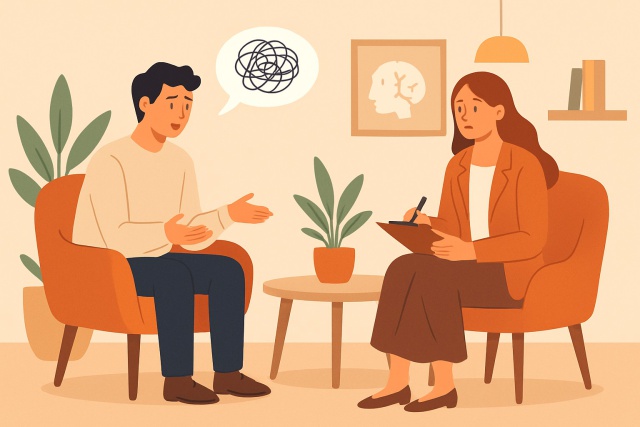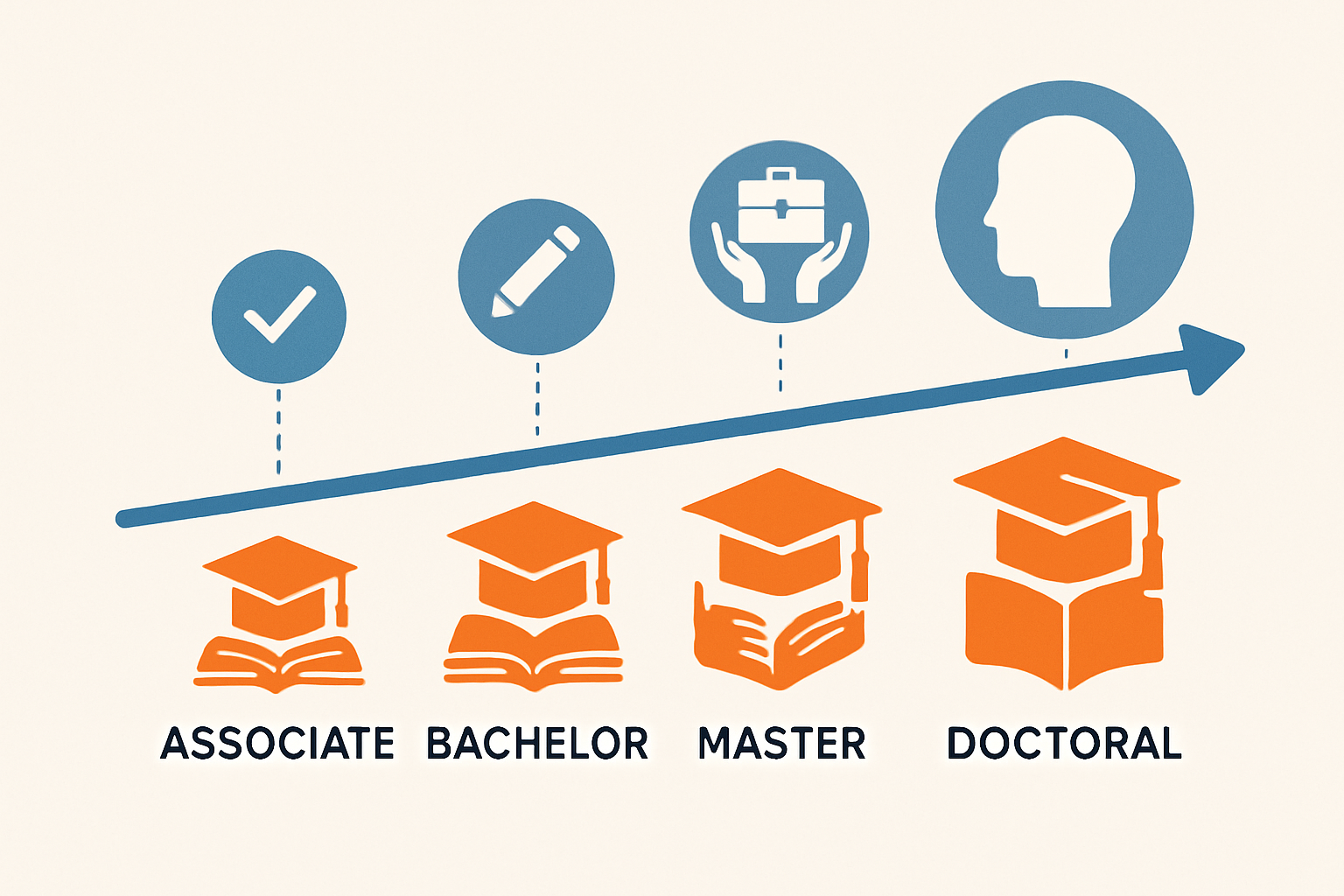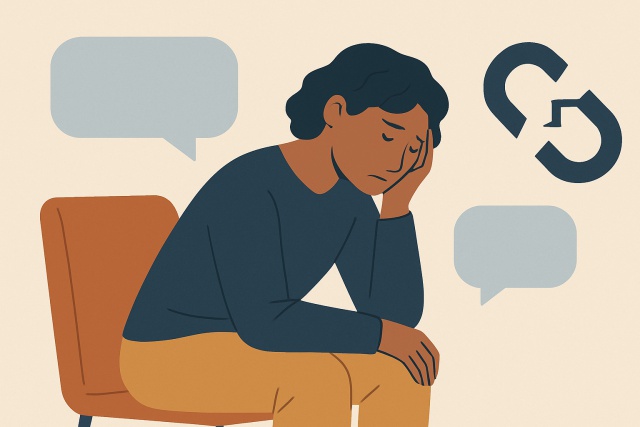
Psychotherapist vs Psychologist - Which One Do You Need?
Confused about whether to see a psychotherapist or psychologist? This comprehensive guide compares t...
Becoming a therapist is a truly rewarding journey that lets you make a real lasting impact on people's mental health and overall well-being, but many aspiring professionals wonder exactly how long does it take to become a therapist. Therapy covers a range of professions dedicated to helping individuals navigate their emotional, psychological and behavioral challenges. Whether you are aiming to become a clinical social worker, a marriage and family therapist or a psychologist, having a clear idea of this timeline is important.
A therapist is a trained professional who offers mental health counseling and support to individuals or groups. Therapy’s main goal is to lift psychological well-being, soothe emotional storms and nudge positive changes in behavior. The roles therapists play can differ quite a bit. Take licensed clinical social workers for instance. They often zoom in on social and community support. Marriage and family therapists tend to dig deep into relationship dynamics. Psychologists might blend therapy with assessments and research, wearing a few hats at once.
Becoming a therapist is quite the journey—one that’s as rewarding as it is challenging. Whether you’re drawn by the chance to help others navigate life’s twists and turns or fascinated by the mind’s inner workings, there’s a path for you. Let’s dive into the main routes you can take to step into this fulfilling role.
Becoming a therapist can follow several educational paths, each tailored to different professional roles and licensing requirements. These options range from entry-level associate degrees all the way up to advanced doctoral programs. Earning a degree is just part of the puzzle—you’ll also need the right certification and licensure to practice legally.
The time it takes to become a therapist can vary depending on the degree you pursue and the licensing requirements. It typically runs from around two years if you choose an associate degree up to over eight years if you aim for a doctoral program and full licensure. Along the way you will have plenty of clinical practice to log and exams to tackle.
| Degree Type | Typical Duration | Additional Requirements | Typical Career Outcomes |
|---|---|---|---|
| Associate Degree | About 2 years | Requires some supervised hours, though usually on the lighter side; often a stepping stone for further study | Roles like counseling assistant or paraprofessional, great for getting your foot in the door |
| Bachelor's Degree | Usually 4 years | Often a must-have before diving into graduate programs | Opens doors to entry-level positions and lays the groundwork for master’s studies |
| Master's Degree | Typically 2 to 3 years | Calls for 2,000 to 4,000 supervised clinical hours plus passing a licensure exam — a bit of a marathon but worth it | Qualifies you for roles like Licensed Professional Counselor, Social Worker, or Marriage and Family Therapist |
| Doctoral Degree (PhD or PsyD) | Around 4 to 7 years | Includes a demanding internship, postdoctoral supervised hours, and licensure | Leads to careers as a Clinical Psychologist or Academic Researcher — those who like to dig deep into the mind’s mysteries |
| Postgraduate Certifications & Licenses | Varies between 1 and 2 years | Requires passing state exams and ongoing continuing education — the learning never really stops! | Enables independent practice and allows you to specialize in your chosen field |
An associate degree in counseling or human services typically takes about two years at community colleges or vocational schools—give or take a summer class here and there. Graduates often land roles as counseling assistants or paraprofessionals, though they usually don’t have what it takes to be licensed independent therapists just yet.
A bachelor's degree in psychology, social work or related fields usually takes around four years of full-time study. This degree lays a solid foundation and offers students valuable insights into human behavior and mental health. It also prepares them for the graduate programs they need to complete before earning clinical licensure.
Master's degrees in counseling, clinical social work or marriage and family therapy typically take around two to three years to complete. These programs blend coursework with hands-on practicum experiences that put theory into practice. After graduation, candidates usually have to complete state-required supervised clinical hours and pass important licensure exams.
Doctoral programs like a PhD or PsyD in psychology or counseling usually take between four and seven years—give or take. These programs dive deep and involve heavy-duty research as well as advanced clinical training and internships that put theory into practice. Once the doctorate is in hand, candidates typically need to rack up supervised postdoctoral hours often between 1,500 and 3,000 before they can think about sitting for their licensure exams. Considering the depth and complexity of this training, it’s no surprise that this path tends to be the longest. It’s also the one that leads to the highest professional credentials, opening doors to clinical work, academia, or research roles.
Becoming a licensed therapist is about a lot more than just snagging a degree. You’ve got to put in a hefty chunk of supervised clinical hours, pass some pretty important exams—whether at the state or national level—and dot all the i's and cross the t's with the necessary paperwork for licensure. This whole journey usually tacks on an extra one to three years, depending on where you live and what degree you hold.
The timeline to become a therapist can vary depending on a few factors. Things like whether you’re studying full-time or juggling a part-time schedule affect it. Licensing requirements in your state, the kinds and availability of internships, and the specialty you pursue also play a role. Personal circumstances and any previous credits you’ve earned can tip the scales.
Different degrees unlock various opportunities in the therapy field. Associate degrees are usually the entry point and qualify you to assist licensed therapists. Bachelor's degrees prepare you for related roles like case management and broaden your toolkit. Master's degrees often lead to licensure to work independently and offer more professional freedom. A doctoral degree opens doors to clinical psychology roles or academic positions.
Becoming a therapist is quite the journey—thorough and demanding—but there are ways to navigate it more smoothly without skimping on your education. Opting for accelerated or flexible programs and transferring credits that count can lighten the load. Cleverly blending practicum experience with coursework also helps. Planning ahead for licensing requirements and finding a good mentor can make the whole process feel less like climbing a mountain.
Take Jane for example. She earned a master’s degree in clinical social work over three years and then completed two years of supervised practice before getting licensed. She became a licensed clinical social worker in about five years total. On the flip side, Mark went through a doctoral PsyD program that took six years followed by a year of postdoctoral training. He then passed his licensure exams to become a clinical psychologist after roughly seven years. These examples show how long it takes to become a therapist can vary significantly based on career path.
"It took me nearly six years to become a licensed therapist. Balancing classes, internships, and all those licensing hoops was no walk in the park, but honestly, every twist and turn along the way helped shape me into someone ready to truly support my clients." – Licensed Professional Counselor Sarah M.

The quickest path usually involves earning a master's degree in counseling, social work or marriage and family therapy which typically takes about 2-3 years. After that you’ll need roughly 1-2 years of supervised clinical hours before you can get licensed. The fastest route to practicing independently tends to run around 4-5 years when you combine education and hands-on supervised experience. It’s a bit of a marathon but worth every step if you ask me.
A bachelor's degree alone won’t cut it if you want to work as a licensed therapist. While it lays a solid foundation and might open doors to roles like case manager or counseling assistant, you’ll still need at least a master’s degree plus state licensure to independently provide therapy or diagnose and treat mental health issues. Think of the bachelor’s as your warm-up lap—it gets you going but there’s more track to cover.
Licensing usually adds another 1-3 years after you finish your degree. This phase includes completing 2,000-4,000 supervised clinical hours which often takes 1-2 years if you’re working full-time. You’ll also have to pass licensing exams and navigate the application process. Since requirements vary by state it’s smart to check out your local rules sooner rather than later—trust me, it saves headaches down the road.
Master’s programs usually last around 2-3 years and focus on clinical practice. They prepare you for licensure as a counselor, social worker or marriage and family therapist. Doctoral programs take roughly 4-7 years and offer advanced clinical training and research opportunities leading to becoming a psychologist. PhDs focus more on research while PsyDs emphasize clinical work. Both require postdoctoral supervision. It’s like picking between a sprint and a longer haul—you’re aiming for different kinds of expertise.
Absolutely. Most people rack up supervised clinical hours while employed in paid positions under a licensed supervisor. These roles, often called 'pre-licensed' or 'associate' positions, are common in clinics, hospitals or private practices. Usually you’ll finish the required hours over 1-2 years if you’re working full-time or it might take longer if you’re part-time. It’s a great way to earn those vital hours while actually getting paid—talk about a win-win.

Confused about whether to see a psychotherapist or psychologist? This comprehensive guide compares t...

Deflection psychology shapes many daily interactions by diverting responsibility and avoiding discom...

Struggling with mental health challenges? Discover clear signs that therapy might be right for you a...

Discover practical strategies to build trust with therapy clients by setting clear expectations, cre...